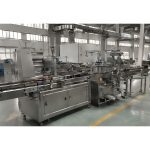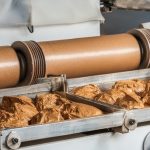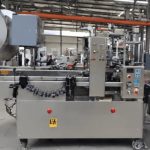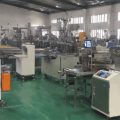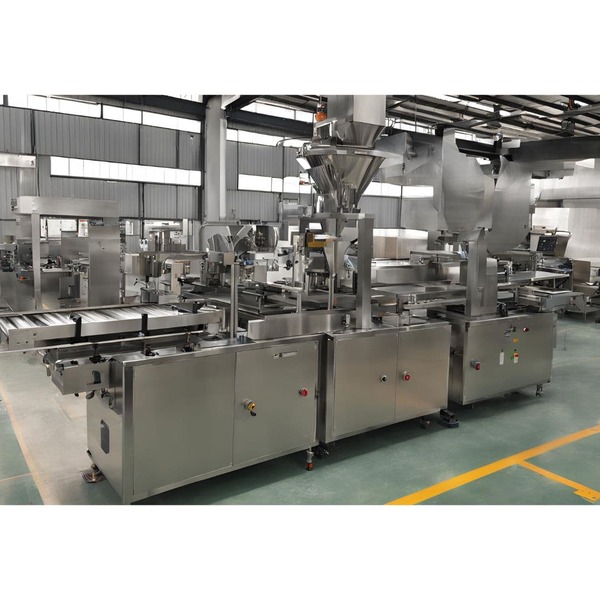
Understanding the Function of Packing Machines
Packing machines are essential components in various industries, playing a critical role in the packaging process of products. These machines are designed to automate the packaging process, which includes a wide range of activities such as filling, sealing, wrapping, labeling, and boxing. The primary function of packing machines is to enhance efficiency, ensure product safety, and maintain consistency in packaging. In this comprehensive overview, we will delve into the various functions and types of packing machines, their significance in different industries, and the benefits they offer.
Types of Packing Machines and Their Functions
Packing machines come in various types, each designed to perform specific tasks within the packaging process. Some of the most common types include:
- Filling Machines: These machines are used to fill products into containers, such as bottles, cans, or bags. They are commonly used in the food and beverage industry, pharmaceuticals, and cosmetics. Filling machines ensure accurate and consistent filling, reducing waste and ensuring product quality.
- Sealing Machines: Sealing machines are used to close and seal packages to protect the contents from contamination and leakage. They are essential in maintaining product freshness and extending shelf life. Sealing machines are used in various industries, including food, pharmaceuticals, and electronics.
- Wrapping Machines: These machines wrap products with protective materials such as plastic film or paper. Wrapping machines are used to bundle products together, protect them during transportation, and enhance their appearance. They are commonly used in the logistics and retail sectors.
- Labeling Machines: Labeling machines apply labels to packages, providing important information such as product details, barcodes, and expiration dates. They ensure that products are properly identified and comply with regulatory requirements.
- Cartoning Machines: Cartoning machines are used to erect, fill, and close cartons or boxes. They are widely used in the food, beverage, and consumer goods industries to package products for retail distribution.
The Importance of Packing Machines in Various Industries
Packing machines play a vital role in numerous industries by streamlining the packaging process and ensuring product quality and safety. Here are some of the key industries that rely heavily on packing machines:
- Food and Beverage Industry: In this industry, packing machines are used to package a wide range of products, from liquids to solids. They help maintain hygiene standards, prevent contamination, and extend the shelf life of perishable goods.
- Pharmaceutical Industry: Packing machines are crucial in the pharmaceutical industry for packaging medicines, tablets, and other healthcare products. They ensure precise dosing, tamper-evidence, and compliance with stringent regulatory standards.
- Cosmetics Industry: In the cosmetics industry, packing machines are used to package products such as creams, lotions, and perfumes. They help maintain product integrity and enhance the visual appeal of the packaging.
- Electronics Industry: Packing machines are used to package electronic components and devices, protecting them from damage during transportation and storage.
- Logistics and Retail: In logistics and retail, packing machines are used to bundle products, apply labels, and prepare goods for shipment, ensuring efficient handling and distribution.
Benefits of Using Packing Machines
The use of packing machines offers numerous benefits to manufacturers and businesses, including:
- Increased Efficiency: Packing machines automate repetitive tasks, significantly reducing the time and labor required for packaging. This leads to increased productivity and faster turnaround times.
- Consistency and Accuracy: Packing machines ensure consistent and accurate packaging, reducing errors and ensuring uniformity in product presentation.
- Cost Savings: By reducing manual labor and minimizing waste, packing machines help lower operational costs and improve profitability.
- Enhanced Product Safety: Packing machines help maintain product integrity by providing secure and tamper-proof packaging, protecting products from contamination and damage.
- Compliance with Standards: Packing machines help businesses comply with industry regulations and standards by ensuring proper labeling, dosing, and packaging.
Challenges and Considerations
While packing machines offer numerous advantages, there are also challenges and considerations to keep in mind:
- Initial Investment: The cost of purchasing and installing packing machines can be significant, especially for small businesses. However, the long-term benefits often outweigh the initial investment.
- Maintenance and Downtime: Regular maintenance is required to keep packing machines in optimal condition. Unscheduled downtime can disrupt production and lead to delays.
- Operator Training: Proper training is essential for operators to effectively use and maintain packing machines, ensuring safety and efficiency.
- Customization Needs: Different products may require customized packaging solutions, which can increase complexity and cost.
Conclusion
Packing machines are indispensable tools in modern manufacturing and distribution processes. They enhance efficiency, ensure product safety, and help businesses meet the demands of a competitive market. By understanding the functions and benefits of packing machines, businesses can make informed decisions about investing in the right equipment to optimize their packaging operations. As technology continues to advance, packing machines will likely become even more sophisticated, offering new opportunities for innovation and improvement in the packaging industry.
